![]()
![]()
Recommended Reading
from Bruce
Hadley Freeman: How about the 'pro-life' lobby get behind these life-positive causes instead? (The Guardian)
Banning abortion isn't the most effective place to start if you want to save lives.
Alison Flood: Romance novelists pledge to confront abortion 'taboo' after Alabama ban (The Guardian)
"We need to start putting abortion in our books," the novelist Liz Lincoln tweeted on Wednesday. "As an alternative to marrying virtual strangers after a surprise pregnancy. As a part of character backstory. As a thing lots of people experience." The taboo surrounding the subject has helped the anti-abortion movement to "systematically chip away at abortion rights", Lincoln says. "It needs to be as regular in books as characters with dead parents or green eyes. As a normal part of life, not as a moral lesson where women are then punished for their choice."
Suzanne Moore: Theresa May saved her tears for herself. If only she'd shown this humanity before (The Guardian)
I admit to feeling a touch of sympathy, but the prime minister is broken because Britain is too.
Suzanne Moore: "The lost Louvre of Uzbekistan: the museum that hid art banned by Stalin" (The Guardian)
This museum in a bleak outpost has one of the world's greatest collections of avant-garde art, rescued from Stalin's clutches by an electrician. But now it needs a rescue of its own.
Jonathan Jones: Manga review - where has all the riotous fun and filth gone? (The Guardian)
It has moments of brilliance but asking us to compare today's graphic artists with greats of the past is misguided. What's next - Rembrandt meets Dennis the Menace?
Peter Bradshaw: Sorry they missed you, Tarantino - but Cannes was right to celebrate Parasite (The Guardian)
Bong Joon-ho's Parasite is a superbly worthy winner of this year's Palme d'Or - though it's a real shame there was no recognition for Once Upon a Time … in Hollywood.
David Bruce's Amazon Author Page
David Bruce's Smashwords Page
David Bruce's Blog #1
David Bruce's Blog #2
David Bruce's Blog #3
David Bruce's Lulu Storefront
David Bruce's Apple iBookstore
David Bruce has over 100 Kindle books on Amazon.com.
Presenting
Michael Egan


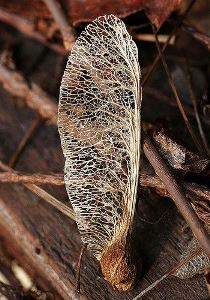
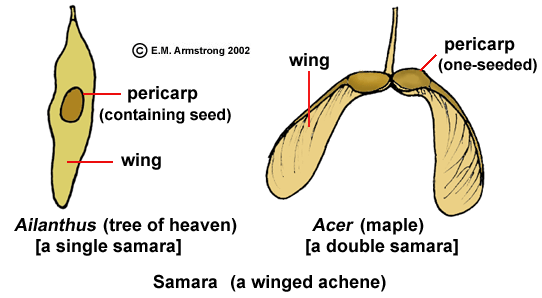
 took the day off.
took the day off.
 In memory.
In memory.
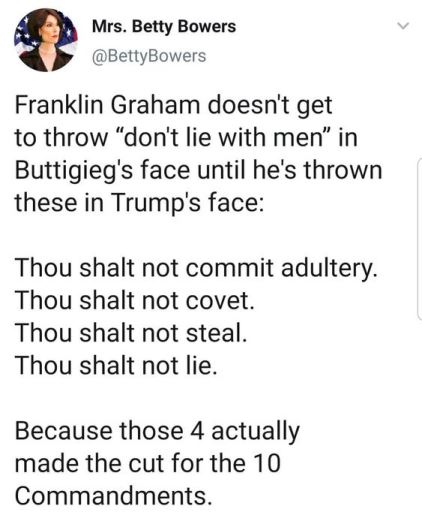

Reader Suggestion
Michelle in AZ

from Bruce
Anecdotes
• Arturo Toscanini played second cello in an orchestra that played the music of Giuseppe Verdi - with Verdi conducting! While playing Verdi's opera Otello, Toscanini played the music as Verdi had written it, including a pianissimo in the last scene of Act 1. During intermission, Verdi came toward the cellists and asked, "Who plays the second cello?" Toscanini was so frightened that he could not move, so another cellist pushed him and said, "Ignoramus, when the great Verdi talks to you, stand up!" Toscanini stood up, and Verdi said to him, "Don't play too soft - play stronger." Toscanini objected, "Maestro, you marked pianissimo." Verdi replied, "Never mind. It must be heard - play naturale." From that experience, Toscanini concluded that a pianissimo in Italian music is different - louder - than a pianissimo in German music. Usually, of course, Toscanini closely followed the markings of composers. A famous conductor once led an orchestra in Robert Schumann's Second Symphony and then asked Toscanini for his opinion. Toscanini replied, "It was bad - all too slow. Why don't you follow Schumann's markings?" The famous conductor replied, "The markings are wrong. No good. They're too fast." Toscanini shouted, "I'd rather be wrong and close to Schumann than right and close to you!"
• Sergei Rachmaninoff and Frances Alda are two famous names in music. One you would especially like to hear play the piano, and the other you would especially like to hear sing. Ms. Alda, a soprano, was playing piano at a get-together of musical notables when Mr. Rachmaninoff remarked to tenor John McCormack, "John, I want to play piano." Mr. McCormack picked up Ms. Alda and deposited her on a couch. She was going to protest, but seeing that Mr. Rachmaninoff was replacing her at the piano, she happily listened to him. By the way, Mr. Rachmaninoff and Mr. Cormack once listened together to a recording of Mr. McCormack singing "None But the Lonely Heart." Mr. Rachmaninoff said, "Is too slow." Mr. McCormack insisted that the tempo was correct. They argued for a while, and Mr. Rachmaninoff's wife finally went to him and whispered a few words of Russian. Mr. Rachmaninoff then told Mr. McCormack, "My wife tells me that you have a perfect right to your opinion - but you are wrong!"
• Not everyone likes new ideas in music; many people like only the music they grew up with or helped to develop. During World War II, many established musicians were drafted into the army, and younger musicians with new ideas took their place. Some bandleaders, such as Woody Herman, welcomed the new musical ideas. Other bandleaders, such as Tommy Dorsey, did not. The old music is always square, and the new music is always avant-garde. Mr. Herman went to a men's clothing store in San Francisco and bought the squarest jacket that he could find. It was a garish plaid and had a belt in the back. Then he sent it to Mr. Dorsey with this note: "If you want to play that way, why not dress that way?"
• Joseph Barbera and William Hanna are famous for their Hanna-Barbera cartoons, featuring such stars as Yogi Berra, Huckleberry Hound, Tom and Jerry, and - of course - the Flintstones. Mr. Barbera was in an elevator with some people, including a lawyer wearing a buttoned-down collar. The lawyer began to hum The Flintstones theme song, and Mr. Barbera bet him $100 that he couldn't sing it all the way through. The lawyer sang it all the way through with gusto, and by the way the elevator had reached the lobby, everyone else in the elevator had joined in the singing. Mr. Barbera said, "It was the most satisfying hundred dollars I've ever spent - though I'm just as glad I hadn't offered a thousand."
• Johnny Dunn, who played trumpet for Mamie Smith, is reputedly the first person to use a plumber's rubber plunger to make music. The plungers come in two sizes - sink and toilet - that are perfect to use as mutes for trumpet and trombone. Charlie Small once needed a mute for a trombone, and so he bought a toilet plunger at a hardware store. But he took only the plunger part and not the wooden stick, saying, "I don't need the stick." The man waiting on him did not know that Mr. Small is a musician, and every time Mr. Small came into the hardware store after that, the man let someone else wait on him.
• Influences are important. Jimmy Rabbitte, a fictional character in the novel and movie The Commitments [Roddy Doyle wrote the novel], asked applicants to be in the soul band he was forming about their influences. If he didn't like their answer, they didn't get in the band - or even a chance to audition. The saxophone player who did get in the band listed his influences as "Clarence Clemons [a tenor saxophonist aka The Big Man], the Muppets, and the man from Madness [a video game]."
• Neil Spencer, editor of New Music Express (NME) from 1978 to 1985, points out that for a long time, female vocalists and musicians were expected to be eye candy. That changed with punk music and Poly Styrene and the Slits. Suddenly, female vocalists and musicians were not playing that game. Mr. Spencer remembers about the Slits, "Guys would shout at them. 'You look ugly,' and they'd reply, 'We're not here to look nice for you.'"
• Chicago tenor saxophonist Von Freeman started playing professionally at age 12. When he showed up for his first day at work, he gave this note from his mother to the nightclub manager: "Don't let him drink, don't let him smoke, don't let him consort with those women, and make him stay in that dressing room." The nightclub manager told him to do something to make himself look older, so he drew a mustache on his face.
• Opera singer Nellie Melba once watched Die Walkyrie at Covent Garden. In the seat behind her was Alfred de Rothschild. Ms. Melba was completely absorbed in the opera, but then she heard a sound that was definitely not from the opera - Alfred de Rothschild was snoring. She looked at him, and he woke up and asked, "What key is it?" Ms. Melba replied that he had been snoring in a different key.
***
© Copyright Bruce D. Bruce; All Rights Reserved
***

Bonus Links
Jeannie the Teed-Off Temp



Selected Readings
from that Mad Cat, JD
JD is on vacation.

Visit JD's site - Kitty Litter Music
In The Chaos Household
Last Night
Rainy day - never got up to 60°.
The thermostat is set at 63°, so the furnace unexpectedly came to life.
Turned the furnace off & fired up the oven - might as well end up with some cookies while heating up the place.

Bans Artist
Facebook
As Facebook cracks down on white nationalist content, a left-wing artist was caught in the crosshairs after the network said her MAGA hat-inspired artwork violated community guidelines.
Kate Kretz, a Maryland-based artist, refashions Don-Old Trump's infamous "Make America Great Again" hats into traditional symbols of white supremacy and hatred, such as the Ku Klux Klan hood and a swastika armband.
Ms Kretz does not create this art because she believes in white supremacy, but rather "to both call out wearers who claim the hats to be innocuous, and to sound the alarm that history is repeating itself," she wrote in a blog post.
After Ms Kretz's MAGA swastika armband was taken down by Facebook, she appealed the removal decision and reposted the image with the caption: "This is not hate speech. This is an art piece addressing hate speech."
Facebook didn't respond to Ms Kretz's appeal in a timely manner, but did respond to the republication of her art by freezing her Facebook account, leaving her unable to post or interact with her followers.
Facebook
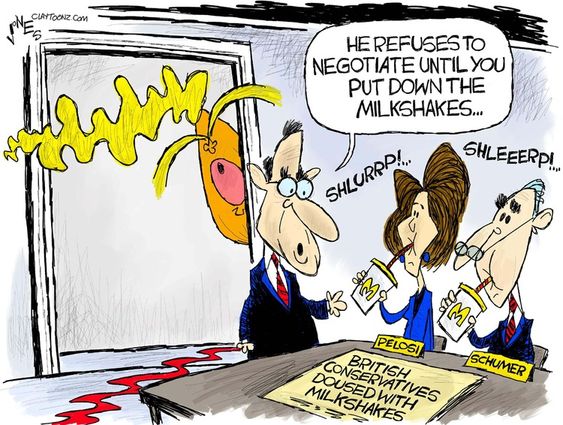
Canceled By NBC
'A.P. Bio'
There will be no third season for NBC comedy series A.P. Bio, executive produced by Seth Meyers. Creator/exec producer Mike O'Brien revealed the news on Twitter.
"I'm intensely sad to announce that AP Bio will be ending after this season," he wrote Friday "This has been my favorite project of my life and that's because of the amazing writers, cast and crew. As most canceled shows probably feel, I think we were just hitting our stride and everyone was still loving the work, so this is very hard. We have 4 left to air and they're 4 of my favorites."
The high school comedy starring Glenn Howerton was relatively well-received by critics, but was never a ratings breakout. This season to-date it averaged a 0.7 rating and 884K viewers in 18-49, and 2.4 million total viewers.
Patton Oswalt, Lyric Lewis, Mary Sohn, Jean Villepique, Tom Bennett, Paula Pell, Charlie McCrackin, Jacob McCarthy, Aparna Brielle, Nick Peine, Allisyn Ashley Arm, Eddie Leavy, Jacob Houston, Sari Arambulo, Tucker Albrizzi and Spence Moore II co-starred.
'A.P. Bio'
Says Complaints Led To Ouster
Scott Pelley
Former "CBS Evening News" anchor Scott Pelley says he lost that job because he wouldn't stop complaining to management about the hostile work environment for men and women.
Pelley was forced out of the position in 2017 after six years on the job.
The "60 Minutes" correspondent told CNN's Reliable Sources Sunday, however, that things have changed after 18 months of dramatic management changes amid a slew of scandals and misconduct claims at CBS.
When asked to elaborate, Pelley said that four or five years ago he went to the president of the news division, who was then Rhodes, and described the hostile environment.
"He told me if I kept agitating about that internally then I'd lose my job," Pelley said. "Having exhausted the possibilities in the news division, I went to the chairman of the CBS Corporation who listened to me very concerned for an hour, asked me some penetrating questions about what was going on...I didn't hear back from him, but in the next opportunity in my contact I was let go from the evening news."
Scott Pelley
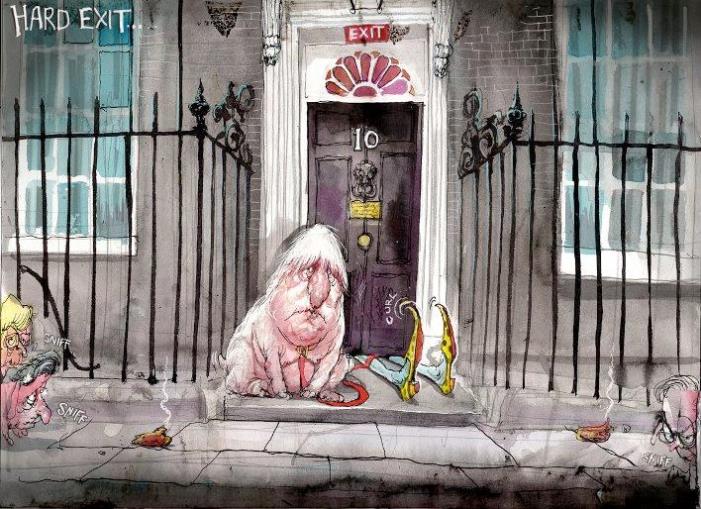
Test Performance & Gender
Temperatures
As we move from a season marked by unstoppable heating units and into one dominated by aggressive air conditioning. Figuring out how to optimize the thermostat involves a balancing of individual comfort and energy efficiency. But a new study suggests that there's an additional factor that should feed into decisions: the performance of any employees or students who happen to be subjected to the whims of whoever has access to the thermostat.
Unexpectedly, the new results show that men and women don't respond to different temperatures in the same way. And, in doing so, they raise questions about just what we've been measuring when other studies have looked at gender-specific differences in performance.
As someone whose mother admonished him to put on sweaters because my bare arms "made her cold," I'm well aware that there's a long-standing cliché about the sexes engaging in a battle of the thermostat. What I hadn't realized is that the existence of that battle is backed by data. Tom Chang and Agne Kajackaite are able to cite four references for the tendency of women to prefer their indoor environments warmer than men do. Chang and Kajackaite, however, found that the academic literature is silent on a related issue: do women have a good reason for wanting it warmer?
To find out, they devised three simple tests of mental performance. One was a simple math problem: add five two-digit numbers together. A verbal task was equally straightforward, with participants being asked to build as many words as possible from a list of 10 letters. Both tests were limited to five minutes, with the total of correct answers added to produce a score. The lack of penalty for wrong answers meant that providing answers quickly was an effective strategy.
The results were clear. For each one-degree increase in temperature, women saw a 1.8 percent increase in the number of math questions they answered correctly. Over the full range of temperatures used here, that means the number of correct answers went up by about half the value compared to the low-temperature room. (For context, Chang and Kajackaite note that the gap in SAT math scores between men and women is about 4 percent.) In contrasts, men's scores went down gradually with rising temperatures, but so gradually that the result wasn't statistically significant.
Temperatures
Recited Names Of Dictators
John McCain
Sen. John McCain repeatedly compared President Don-Old Trump (R-OfVlad) to a dictator during Trump's inaugural address, Minnesota Sen. Amy Klobuchar, a Democratic White House contender and friend of the late Arizonan, told a crowd of voters here.
Klobuchar, speaking to a crowd of more than 200 at Jasper's Winery, said she sat next to McCain, one of Trump's most outspoken Republican critics, and Sen. Bernie Sanders (I-Vt.) during the inaugural address, which became known for its blunt expression of Trump's authoritarian populism and invocations of "American carnage."
"I sat on that stage between Bernie and John McCain, and John McCain kept reciting to me names of dictators during that speech because he knew more than any of us what we were facing as a nation," Klobuchar said. "He understood it. He knew because he knew this man more than any of us did."
McCain and Trump feuded frequently during the president's first 18 months in office, and the president has continued to attack McCain since the senator's death last August. McCain refused to endorse Trump during the 2016 campaign, and later attacked his approach to politics as a "half-baked, spurious nationalism cooked up by people who would rather find scapegoats than solve problems."
Trump, for his part, attacked McCain for his vote to kill an Obamacare repeal bill in the Senate and famously criticized him for being captured while serving as a fighter pilot in Vietnam. "I like people who weren't captured," he said in the early stages of his presidential bid.
John McCain

Another Pro-Rape, Pro-Incest Conservative
Florida
A Florida state representative told a group that God told him to a rewrite an abortion bill without exceptions for rape or incest.
In a speech given to Women for Responsible Legislation group in Pensacola, Florida, state representative Mike Hill said God spoke directly to him about a restrictive abortion bill he had previously tried and failed to pass in Florida's legislature.
"As plain as day, God spoke to me," Mr Hill, a Republican, told the group. "He said 'that wasn't my bill,' talking about the heartbeat detection bill that I filed. He said 'that wasn't my bill.'"
The bill which Mr Hill, and, allegedly, God, were referring to would have restricted abortions after a fetal heartbeat is detected. Mr Hill's proposed version of the ban, which is currently sweeping the nation in various forms, included exceptions for rape, incest, medical emergency, human trafficking, and domestic violence.
"[God] said, 'you remove those exceptions and you file it again.' And I said 'yes Lord, I will'," Mr Hill said. "It's coming back. It's coming back. We are going to file that bill without any exceptions, just like what we saw passed in Alabama."
Florida
Looks Like an 'F' in Old Manuscripts
The Letter 'S'
If you've ever had the pleasure of looking at a centuries-old manuscript, like an original handwritten copy of the U.S. Bill of Rights or a first-edition printing of John Milton's epic poem "Paradise Lost," you may have stumbled over an unfamiliar letter: the long s.
To modern readers, the long s (written as 'ß') might make you think you're catching misspellings or typos like "Congrefs" instead of "Congress" or "Loft" instead of "Lost." Look closer though and you'll notice that, unlike an f, the character either has no crossbar or only a nub on the left side of the staff. Though it may seem more like an f, the letter is just another variation of the lowercase s.
Where did the long s come from and why has this character largely disappeared? John Overholt, a curator at Harvard University's Houghton Library, told Live Science that the long s originated in handwriting and was later adopted in typography when printing became widespread in Europe during the Renaissance.
The long s can be traced back to Roman times, when the lowercase s typical took an elongated form in cursive writing in Latin. According to librarians at the New York Academy of Medicine, people were using the long s at the beginning and middle of words by the 12th century.
The end of the long s was quite abrupt in English printing, occurring around 1800, but the character lingered a little longer in the U.S. Outside of manuscripts and antique books, you might only encounter the long s in German, where it lives as one half of the "Eßzett," or double s character (written as 'ß').
The Letter 'S'

'Virgin Birth'
Anna The Anaconda
A Boston aquarium has confirmed that the surprise birth of anaconda snakes to a mother living with only other females was an instance of parthenogenesis - a term that comes from the Greek words meaning "virgin birth."
Anna is an 8-year-old, 10-foot-long green anaconda living in the New England Aquarium's Amazon exhibit, the facility said in a Thursday statement. The exhibit includes only female snakes, which was aimed at preventing them from reproducing.
Staffers "unexpectedly" discovered "newborn snakes" in the exhibit over the winter, the aquarium's statement read. They then found that Anna was still giving birth. (Anacondas give birth to live young, they do not lay eggs.)
Veterinarians "immediately suspected" that the births resulted from parthenogenesis, a form of nonsexual reproduction that involves an unfertilized egg developing into an embryo.
Only two of Anna's offspring survived. Most were stillborn, the aquarium's release said, noting that's a common result when parthenogenesis happens. Of the three that were born alive, one died a couple of days later.
Anna The Anaconda
Weekend Box Office
'Aladdin'
Moviegoers voted with their dollars and chose the familiar over the new this Memorial Day weekend. The Walt Disney Co.'s live-action remake of "Aladdin" crushed the competition at the box office, which included two new original R-rated films that opened as counterprogramming to the family pic: The critically acclaimed teen comedy "Booksmart" and the horror movie "Brightburn."
But the strategy didn't quite work. "Aladdin" did better than expected, grossing an estimated $86.1 million to take the top spot at the North American box office, according to studio estimates on Sunday. It'll likely pass $100 million by Monday. The others didn't even break $10 million.
The top few spots at the holiday box office were populated by known brands and sequels. "John Wick: Chapter 3 - Parabellum," now in its second weekend, placed second with $24.4 million. "Avengers: Endgame" took third with $16.8 million, and "Pokémon Detective Pikachu" landed in fourth with $13.3 million.
A surprise for many, however, was "Booksmart," an Annapurna film distributed by United Artists Releasing, which debuted in sixth with only $6.5 million, despite excellent reviews and steady buzz from its SXSW film festival debut. Although in line with studio expectations going into the weekend, some had thought that this would be a summer breakout hit.
Estimated ticket sales for Friday through Sunday at U.S. and Canadian theaters, according to Comscore. Where available, the latest international numbers for Friday through Sunday are also included. Final domestic figures will be released Tuesday.
1."Aladdin," $86.1 million ($121 million international).
2."John Wick: Chapter 3 - Parabellum," $24.4 million ($24.8 million international).
3."Avengers: Endgame," $16.8 million ($15.3 million international).
4."Pokémon Detective Pikachu," $13.3 million ($24.3 million international).
5."Brightburn," $7.5 million ($4.5 million international).
6."Booksmart," $6.5 million.
7."A Dog's Journey," $4.1 million ($6.5 million international).
8."The Hustle," $3.8 million ($4.6 million international).
9."The Intruder," $2.3 million.
10."Long Shot," $1.6 million ($788,000 international).
'Aladdin'
In Memory
Maureen Beebe
The woman depicted as the little girl in the "Misty of Chincoteague" book died over Memorial Day weekend, the Chincoteague Volunteer Fire Company announced.
The news of Maureen Beebe's death was announced on the fire company's Facebook page Saturday, May 25. Beebe died around 8 a.m., said Denise Bowden, spokeswoman for Chincoteague Volunteer Fire Company.
Beebe inspired the girl character in the children's novel by Marguerite Henry. While the book is fiction, it is inspired by real people, according to Chincoteague.com.
"Misty of Chincoteague," which published in 1947, takes place on the island in Virginia and centers around the Beebe family who purchase Misty and her mother, Phantom, at at the auction during Pony Penning following the pony swim. Both horses in the book were based on real-life Chincoteague ponies.
Pony Penning is a week of events on Chincoteague Island that occurs every July. The week includes a Pony Swim, in which the Chincoteague ponies swim across the channel between Assateague and Chincoteague islands, and a Pony Auction. The auction of the foals benefits the fire department who maintains the wild herd.
The fire company's post said Beebe was more than the little girl in the children's book.
"She was a legend, a testament to good works, a heartfelt soul who cherished her independence and her family," the post read.
Maureen Beebe

| CURRENT MOON lunar phases |


